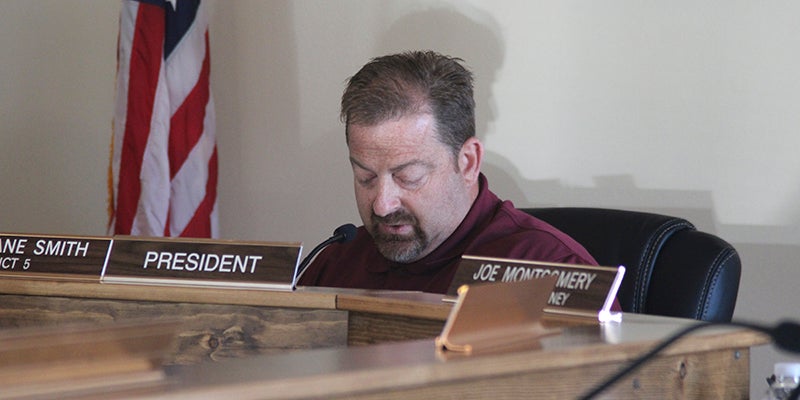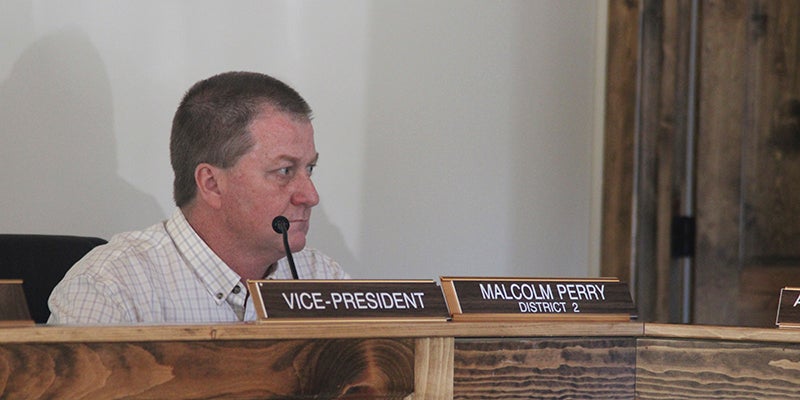Pearl River County endorses shelter-in-place order
Published 7:00 am Friday, April 3, 2020
Pearl River County’s Board of Supervisors endorsed the shelter-in-place order passed by Governor Tate Reeves on Wednesday to slow the spread of COVID-19, which goes into effect Friday at 5 p.m. and remains in effect until 8 a.m. Monday, April 20.
Counties and cities in the state are able to issue stricter restrictions than order 1466. The order can be enforced by local law enforcement and by state law enforcement or other government entities like the health department. Repercussions for violating the order could include a $500 fine or a short prison sentence, said Board attorney Joe Montgomery.
However, District IV Supervisor Jason Spence noted that the order will be difficult to enforce and the county really needs citizens to voluntarily comply with the measures to protect public health. The Board coordinated the timing of its endorsement with Reeves’s staff in an effort to prevent confusion, said District V Supervisor Sandy Kane Smith.
For People
Social gatherings, including weddings and funerals, of more than 10 people have to be cancelled or rescheduled. Recreational spaces, including parks or lakes, have to close to the public, although walking trails are allowed to stay open.
People are ordered to practice social distancing—staying six feet apart—in public places, and practice frequent hand washing and use of hand sanitizer.
People are still able to conduct activities like getting groceries or walking their pets. Permitted activities include: tasks needed for health and safety of people in a household or pets, obtaining necessary food or supplies, delivering necessary food or supplies to people who cannot leave their home, individual outdoor recreation and working for an essential business.
People are still allowed to travel for essential businesses, to travel to or from home, to go to an educational institution for free food or distance learning materials, to care for people who are elderly, minors, dependents or who have disabilities, or for a court order, like transporting kids for a custody agreement.
Evictions are suspended and all law enforcement officers are supposed to stop enforcing eviction orders for residential properties during the shelter in place. However, people are still obligated to make rent or mortgage payments.
For Businesses
Under the order, non-essential businesses and non-profits must stop their operations, except for work that maintains properties, equipment or inventory, payroll, employee benefits, security and work that facilitates remote work.
Essential businesses can stay open and operational at the level needed to provide their essential services and functions.
What is an Essential Business?
Essential businesses are defined in Executive Order 1463. The list is broad. It includes essential government functions, like law enforcement, child welfare and emergency management; essential healthcare operations, which are broadly defined to prevent any interruptions of delivering essential healthcare but do not include fitness or exercise gyms. Infrastructure is also deemed essential, which includes utilities, communication and transportation. Other essential businesses include manufacturing of products used by other essential businesses or operations, agriculture and logging, retail such as grocery stores, hardware stores or gas stations. Waste collection, mail delivery, automotive repair or laundromats and media outlets are also deemed essential. When pertaining to education, essential personnel include educators supporting a public or private school, college, university or other educational institution in regard to providing distance learning, critical research for school functions or providing meals. Financial and professional services, including banking, insurance or real estate are also essential. Organizations that provide basic necessities to economically disadvantaged people, like food banks or foster care also comply with the definition. Services that also fall into the category of essential include construction and construction related services; safety or sanitation services, which includes fire prevention, building cleaning, mortuaries and firearm retailers; companies that provide essential services to the military or federal government; child care programs and services; waste disposal; and religious entities that are adhering to CDC and state guidelines for preventing the spread of COVID-19.
A more comprehensive list can be found in Executive Order 1463.
Support
Sheriff David Allison and State Representative Jansen Owen both voiced their support for the shelter-in-place order during the Board’s Emergency meeting Wednesday afternoon.
Owen also recommended that the county and other essential businesses provide letters to all essential employees that they can carry with them, in case they need to demonstrate that they are traveling for an essential reason.
Read the Orders





